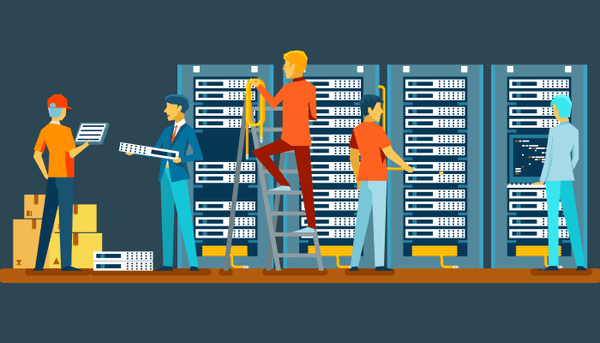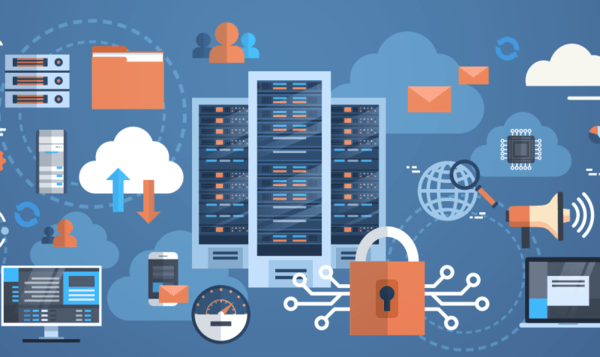
Effective Risk Management in Data Centers
February 27, 2019
How Blockchain Technology Can Revolutionize Energy
March 5, 2019Over the last few decades, the role of data professional has become much more attractive and widely known. The job may be difficult to understand for a layman, but data professionals provide services like data conversion and migration, database and data warehousing and implementation, business intelligence solutions and customized software solutions.
But, like any other professional, a data expert will encounter some challenges. Some challenges will be brought up by the data itself and others will come from working with others, whether in your own organization or from another institution.
New Technology
Technology advances rapidly and, as a data professional, you will surely be aware of this. The real challenge is deciding which of the new technologies will work to the best interest of improving your organization and which is better to avoid. For example, most data professionals claim that they now work with Artificial Intelligence.
This will clearly, to some extent make a data professional’s life easier, though it will mean significant economic investment on your company’s part, as well as an investment of time for you to learn how the new technology works.

Advanced technology may take up a lot of the time of data professionals as they may be forced to learn new skills as technology and hardware development. As well as this, new technology may also lead to the obsolescence of some data, leading to challenges in the industry.
Big Data
For better or worse, we now live in a world of ‘big data’, in which companies and institutions have the power and the technology to compile huge amounts of data in order to build knowledge of consumption patterns, or political views, and of a host of other things. As a data professional, this is clearly both a threat and an opportunity. A threat as there are challenges to analyzing the data, and an opportunity because your skills will clearly be needed.
As well as this, the accessibility of data is expected to grow at a higher rate in the next few years. The major challenge is that more than 80 percent of it is unstructured data. This is data that doesn’t have a defined style of data organization, and it may be text heavy and include things such as emails.
Due to the proliferation of internet sites, unstructured data is becoming more widespread than organized data, and this presents challenges to data professionals, as unstructured data is more complicated, and thus more costly, to analyze. However, unstructured data analysts have the potential to reveal more important, and thus more valuable, information through the data, though sometimes this becomes very difficult or impossible to interpret.

In fact, a good indicator of the trend towards big data, and the challenges that it brings is that many data professionals feel ‘overwhelmed by data’. There is simply too much out there, and it sometimes feels too difficult to know what is good data and what is not, which to put into the data set and which to discard.
The accessibility of data, coupled with the fact that much of it is potentially quite difficult to analyze, is one of the biggest challenges facing data professionals.
Data From Multiple Sources
As a data professional, you may obtain your data from multiple sources. Data from multiple sources might be contradictory, or lacking in reliability, or it may even have a political agenda. In fact, the reliability of data was one of the biggest concerns of data professionals in the last year.
This is because many companies that either gather or use data will then go on to share this with multiple other sources. For you, the challenge is clearly in knowing which data you should trust: which should you use to further your knowledge, and which should you discard as inaccurate or unreliable.
Perhaps the best way to meet this challenge is to carefully choose the sources of your data. If you do this, you can ensure that the data you are using is appropriate and will help your business to grow.
Creating Value
Data professionals focus on providing their services in line with an organization’s users and an organization’s departmental needs. Some organizations may outsource their data operations, so data professionals may effectively work as freelancers. This may be a good thing, as it creates flexibility. However, there is an element of insecurity.
The challenge for you is to ensure that the service you provide for your employer creates value for the organization. As we have said, data has never been so accessible. This is an opportunity for you, but also a challenge, as you will need to justify your role in a business, especially since big data can now be accessed by non-professionals at the push of a button.
Cooperating between Multiple Departments
Professionals in different departments may want their data sourced from a specific source. Harmony between the departments is consequently essential. This is because data that comes in different formats or that needs to be cleaned or reformatted, will merely make data integration impossible and will make your life harder and your company run less efficiently.
This is why data professionals have cited format consistency or data as being vitally important, indeed one of the greatest challenges faced by data professionals, and why professionals are pushing for data integration.
In conclusion, data professionals will face many obstacles in their field, but this doesn’t mean that they cannot face these challenges head-on. Living as we do in a knowledge society, in which data is a huge economic asset (in fact it may become one of the only economic assets in the next few decades), there has never been a more rewarding time to be a data professional, both in terms of the challenges you will face in work an also in relation to the wage a well-qualified data professional can command.